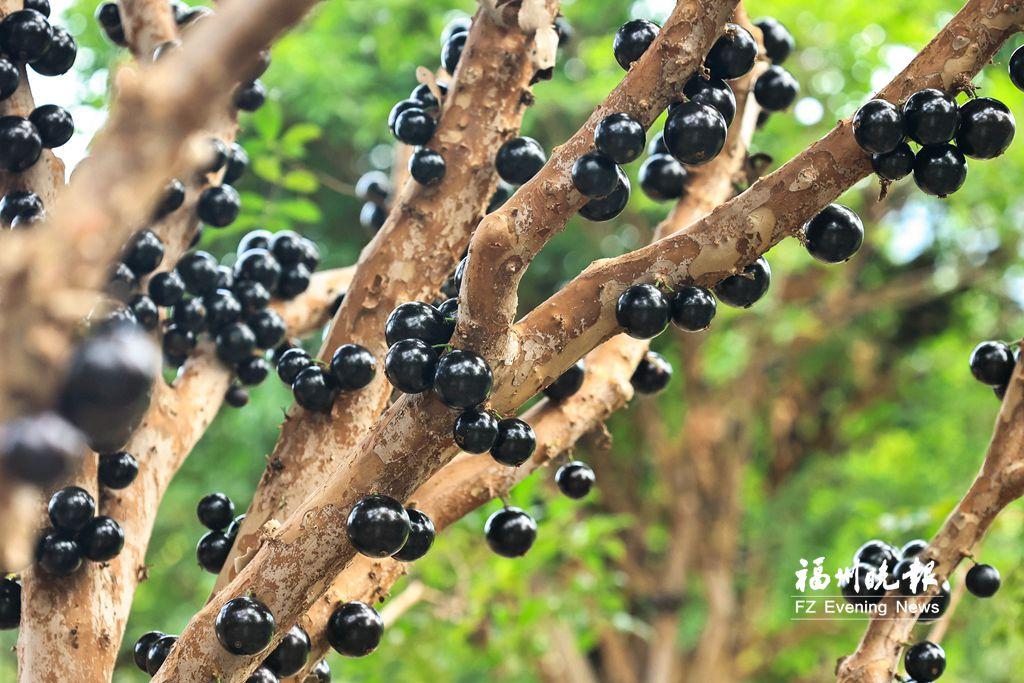Lianjiang-Grown Jaboticaba Hits the Market With a Daily Output of 200 to 300 Kilograms

The jaboticaba is now ripe in Lianjiang.
Jaboticaba (Myrciaria cauliflora) is a fruit with flavors reminiscent of mangosteen, guava, sugar apple, and pineapple. Currently, the Taiwan Sabara jaboticaba grown in Lianjiang is ripening and making its way to the market.
In the Tianlibao Jaboticaba Orchard in Pandu Town, rows of lush green trees stand neatly aligned. The jaboticaba fruits, clinging to the trunks, shimmer with a pearlescent glow under the sunlight, filling the air with a sweet, refreshing fragrance.
It is reported that the orchard covers more than 50 mu, primarily cultivating the Taiwan-imported Sabara jaboticaba. “In addition to Pandu Town, I also grow them in Danyang Town and Liaoyan Township. Altogether, the three bases have over 10,000 jaboticaba trees, producing 200 to 300 kilograms of fruit daily,” said the orchard owner, Gao Yuzhu. This year, she transplanted two jaboticaba trees, each over 50 years old, from Taiwan. Each tree can yield up to 200 kilograms of jaboticaba.
Jaboticaba trees grow slowly, taking over 10 years of careful cultivation to reach full fruiting. According to the information, Tianlibao Jaboticaba Orchard has adopted new management technologies that not only boost the trees’ survival rate but also increase the annual yield per tree by around 5 kilograms. Each tree can bear fruit 3 to 4 times a year.
Jaboticaba is rich in anthocyanins, vitamin C, and other nutrients, making it a unique fruit with beauty, health, and medicinal benefits. “We have already developed a range of jaboticaba-based products, including liquor, fruit wine, fruit leaf tea, and preserved fruit. Looking ahead, we plan to introduce boxed beverages, further expanding the jaboticaba product line,” said Gao Yuzhu. Products made from jaboticaba are not only highly popular among domestic consumers but are also exported worldwide. (Fuzhou Evening News Reporter: Zheng Ruiyang; Correspondent: Lian Rongmei, Text/Photo)